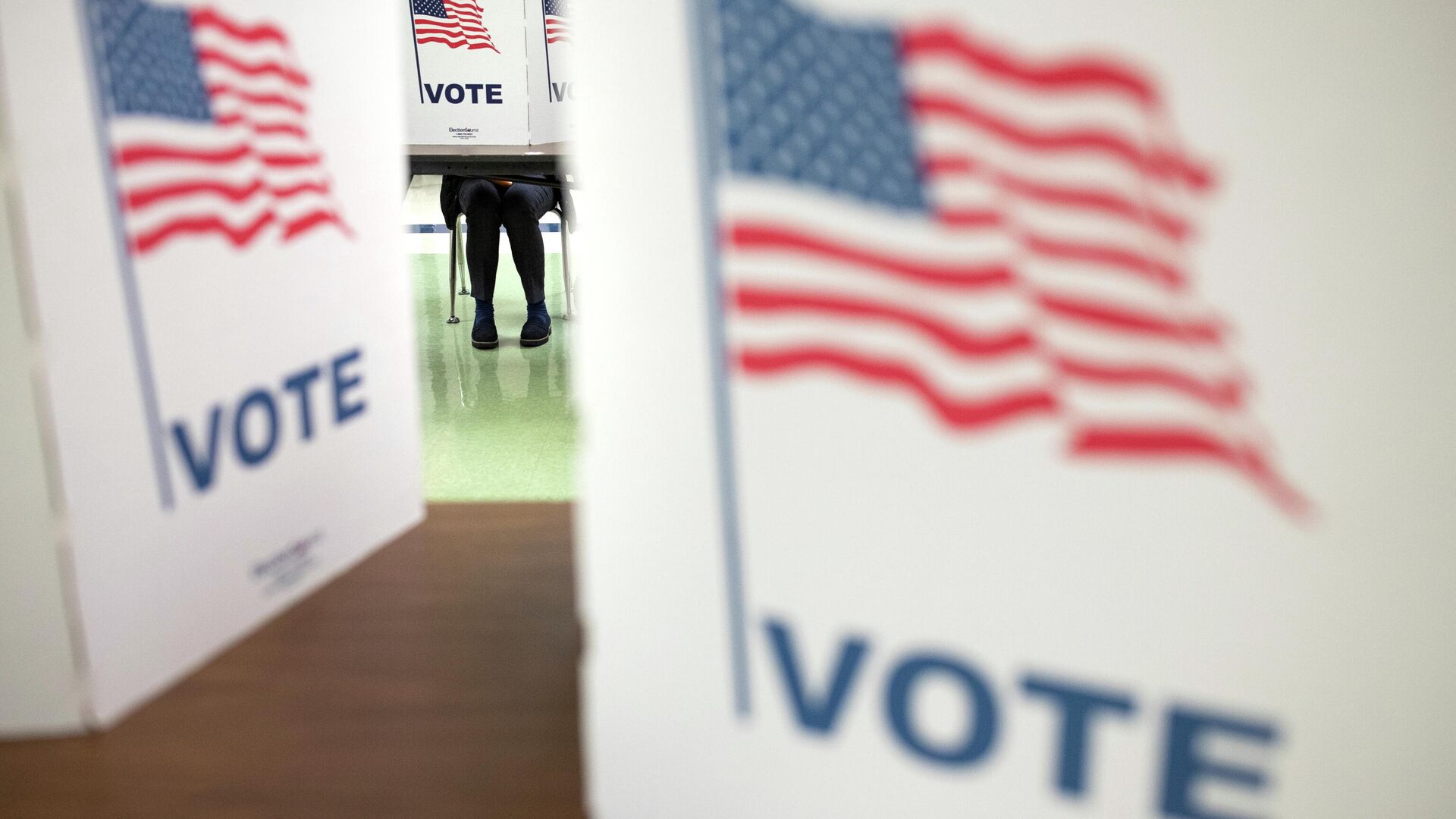https://sputnikglobe.com/20211116/advocacy-group-warns-counties-in-5-us-states-to-clean-voter-lists-or-face-lawsuits-1090784892.html
Advocacy Group Warns Counties in 5 US States to Clean Voter Lists or Face Lawsuits
Advocacy Group Warns Counties in 5 US States to Clean Voter Lists or Face Lawsuits
Sputnik International
WASHINGTON (Sputnik) – Election officials in 14 counties in five US states must clean voter registration rolls of diseased and other ineligible voters or face... 16.11.2021, Sputnik International
2021-11-16T22:29+0000
2021-11-16T22:29+0000
2021-11-16T22:29+0000
us
election
voters
federal election law
voter registration
https://cdn1.img.sputnikglobe.com/img/07e5/0b/02/1090428590_0:160:3072:1888_1920x0_80_0_0_8381aad1311c0de9554dfa93f92441a5.jpg
Letters sent to election officials cite the National Voter Registration Act of 1993 (NVRA), which requires states to make reasonable efforts to remove from official voter rolls names of ineligible voters who have either died or changed residence, Judicial Watch said in a press release.The release included data submitted by counties in the states of California, New York, Illinois, Oregon and Arkansas to the Federal Election Assistance Commission (EAC) showing that all 14 jurisdictions had removed a total of 33 names of ineligible voters in the past four years.Six of those counties encompassing New York City and surrounding jurisdictions – among the most densely populated in the US – had removed a total of three names from voter rolls since November 2020, the release added.The release cited a provision in the NVRA requiring voter registrations to be cancelled when voters fail to respond to address confirmation notices and then fail to vote in the next two general federal elections — a provision upheld by the US Supreme Court in 2018.
Sputnik International
feedback@sputniknews.com
+74956456601
MIA „Rossiya Segodnya“
2021
Sputnik International
feedback@sputniknews.com
+74956456601
MIA „Rossiya Segodnya“
News
en_EN
Sputnik International
feedback@sputniknews.com
+74956456601
MIA „Rossiya Segodnya“
Sputnik International
feedback@sputniknews.com
+74956456601
MIA „Rossiya Segodnya“
us, election, voters, federal election law, voter registration
us, election, voters, federal election law, voter registration
Advocacy Group Warns Counties in 5 US States to Clean Voter Lists or Face Lawsuits
WASHINGTON (Sputnik) – Election officials in 14 counties in five US states must clean voter registration rolls of diseased and other ineligible voters or face lawsuits charging violations of a federal election law, the advocacy group Judicial Watch warned on Tuesday.
Letters sent to election officials cite the National Voter Registration Act of 1993 (NVRA), which requires states to make reasonable efforts to remove from official voter rolls names of ineligible voters who have either died or changed residence, Judicial Watch said in a press release.
"About 10% of Americans move every year. Those counties should generate hundreds of thousands of cancelled registrations. There is simply no way to comply with federal law while removing so few outdated registrations under its key provision," Judicial Watch Director of Voting Integrity Robert Popper said in the release.
The release included data submitted by counties in the states of California, New York, Illinois, Oregon and Arkansas to the Federal Election Assistance Commission (EAC) showing that all 14 jurisdictions had removed a total of 33 names of ineligible voters in the past four years.
Six of those counties encompassing New York City and surrounding jurisdictions – among the most densely populated in the US – had removed a total of three names from voter rolls since November 2020, the release added.
The release cited a provision in the NVRA requiring voter registrations to be cancelled when voters fail to respond to address confirmation notices and then fail to vote in the next two general federal elections — a provision upheld by the US Supreme Court in 2018.

